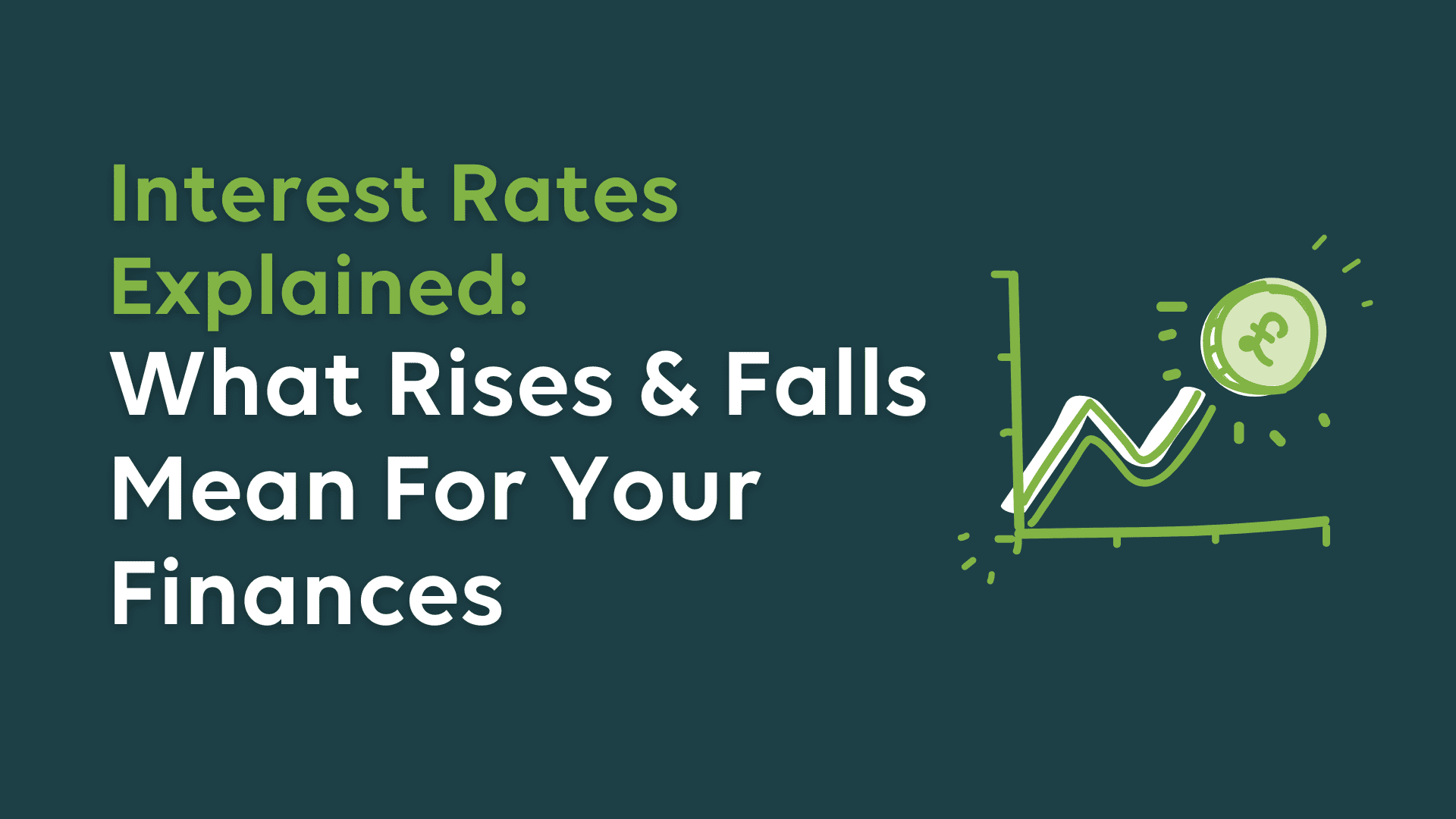Understanding Interest Rates in the UK
Interest rates are incredibly important to the economy, affecting every one of us, from mortgage payments to the returns we see on our savings. But what exactly are interest rates, and what might future changes mean to your financial situation?
With the Bank of England due to adjust the Bank Rate on 1st August 2024, our new guide aims to explain the fundamentals of interest rates in the UK and to give you all the information you need to know.
What are Interest Rates?
Interest rates represent the cost of borrowing money or the reward you earn for saving it. They are usually expressed as a percentage of the amount either borrowed or saved. For instance, if you take out a loan with an interest rate of 5%, you’ll end up paying an extra 5% of the loan amount as interest over a specified period. In simpler terms, it’s like a small fee for borrowing or a little bonus for saving. Understanding how interest rates work can really help you manage your finances better and make smarter decisions.
What is the Bank of England ‘Base Rate’?
The Bank of England ‘Base Rate’ or ‘Bank Rate’, influences the interest rates set by commercial banks and financial institutions.
When the base rate is low, borrowing costs less and it’s more encouraging for people and businesses to take out loans and increase their spending.
On the flip side, when the base rate is high, borrowing is expensive, and people and businesses will spend less.
So, if you have a mortgage, a savings account or you’re thinking of taking out a loan to pay for a well-deserved holiday, what the Bank of England does directly affect you and your finances.
What is the Current Interest Rate and Rate of Inflation in the UK?
- The Bank of England Base Rate is 5.25% (which is the highest level in 16 years)
- The Rate of Inflation is 2% (the lowest rate in 3 years)
The Bank of England adjusts their base rate as a direct measure to influence the rate of inflation. When inflation is high, the Bank of England may increase interest rates to encourage saving and reduce spending, which can help lower inflation. Conversely, if inflation is low, the Bank of England may lower interest rates to stimulate spending and investment.
Currently, the Bank of England is meeting its target of 2% inflation.
When will UK Interest Rates Go Down?
The next Bank Rate announcement is scheduled for 1st August 2024.
With the rate of inflation being on target for the Bank of England, some of us are hoping for interest rates to go down, but it all depends on personal circumstances and the types of interest rates which we’re subjected to.
Until they formally publish their decision, we won’t know for certain what the Bank of England will choose to do.
Types of Interest Rates:
- Fixed Interest Rates: These rates remain constant for a set period, providing certainty over your payments or returns. Fixed rates are common for mortgages and personal loans.
- Variable Interest Rates: These rates can change over time, usually in line with the base rate set by the Bank of England. While variable rates can decrease, saving you money, they can also increase, potentially raising your costs.
- APR (Annual Percentage Rate): This is the total cost of borrowing, including interest and any fees, expressed as an annual percentage. APR is useful for comparing different loan or credit card offers.
- AER (Annual Equivalent Rate): This is used for savings accounts and shows what the interest rate would be if interest were paid and compounded once a year. It helps compare different savings products.
How Interest Rates Affect You
- Mortgages: If you have a variable rate mortgage, changes in the Bank Rate will directly affect your monthly payments. A higher interest rate means higher mortgage payments, while a lower rate can reduce your payments.
- Savings: Interest rates on savings accounts tend to rise and fall with the base rate. Higher rates mean better returns on your savings, while lower rates can diminish your savings’ growth.
- Loans and Credit Cards: The interest rates on personal loans and credit cards can also be influenced by the base rate. Higher rates make borrowing more expensive, while lower rates can reduce the cost of repaying debt.
- Investment Returns: Interest rates can affect the performance of investments such as bonds. Generally, higher interest rates lead to lower bond prices, while lower rates can boost bond prices.
Will Interest Rates Go Down?
All things considered, industry analysts are predicting that interest rates will indeed go down, with some speculating a 4% (or even 3%) base rate by the end of 2025.
Regardless of how adjustments to the Bank Rate play out though over the next few years, it’s important to think about how this may affect your financial decisions, including any upcoming retirement plans.
If you’re looking to retire soon and want to make sure that your finances are in the best place they can be, look no further than Joslin Rhodes. Our local experts in Stockton are here to help. Book your free consultation today.
Joslin Rhodes Pension & Retirement Planning – Real Advice, For Real People
Request your free call back
Pop your details below to arrange a call with our local pension & retirement planning advisers

